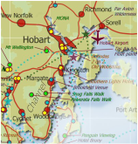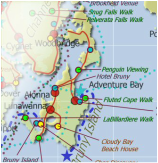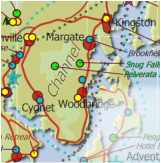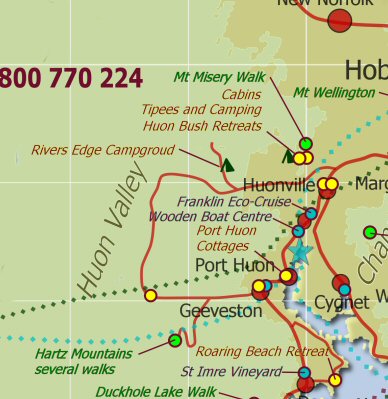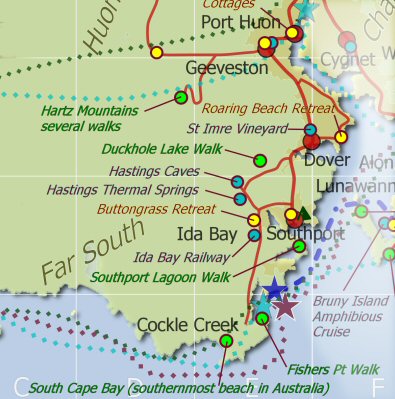| The 2013 Australian Federal budget allocations for tourism funding appears to be mostly "steady as she goes" . Tourism Australia and other industry bodies seem quietly satisfied with the outcomes. As a discretionary spending item for most people, tourism is an industry that is heavily dependent on marketing. It is also one of Australia's big income earners and big employers. A modest government marketing spend is returned many times over in money spent by tourists. Budget Comments from Tourism Australia The 2013/14 Federal Budget has delivered a stable outcome for tourism which has largely protected Tourism Australia's (TA) core funding. While the base appropriation for TA maintains a level of around $130-135M over the forward estimates, there is a significant increase to the marketing capacity available to TA through the Asia Marketing Fund (AMF) - which is tied to revenues collected via the Passenger Movement Charge(PMC). In 2012/13 the PMC delivered $8.5M for the AMF and this has been forecast to increase to around $12.5M in the next financial year. | Department of Resources, Energy and Tourism Budget Statements The resources, energy and tourism sectors are key drivers of the Australian economy underpinning the competitiveness of regions, industries and businesses across the economy. These sectors are at the forefront of the economic and environmental challenges facing Australia, accounting for over 11 per cent of Australia’s Gross Domestic Product (GDP) and over 65 per cent of Australia’s export earnings. The purpose of the Department of Resources, Energy and Tourism (the Department) is to enhance Australia’s economic prosperity by improving the productivity, competitiveness, security and sustainability of the resources, energy and tourism sectors through the provision of high quality. Program 3: Tourism Related Initiatives and Management Program 3 Objective The Australian tourism industry is diverse in nature and is characterised by a prevalence of small and medium enterprises and a high level of labour intensity. The industry is facing a challenging environment with intense competitive pressures and is vulnerable to factors beyond its direct influence. The key objective of this program is to lead the development and implementation of the Government’s tourism policy to maintain and promote a competitive tourism sector. This program seeks to strengthen and stimulate growth in the tourism industry through the following activities: – facilitating growth of domestic and international tourism; – working with relevant partners to address regulatory barriers to tourism; – working with government agencies to support adequate planning and management of border security, transport linkages and safety to enhance tourism security; – working with other government agencies and stakeholders to ensure that infrastructure development contributes to the competitiveness of the tourism sector; – promoting the development of innovative products, services or systems within the tourism industry to improve the quality of Australia’s tourism products and services; – working collaboratively with stakeholders to support the development of sustainable Indigenous tourism businesses; – actively engaging with government agencies to ensure that the Government’s labour and skills policies contribute to a sustainable and productive tourism industry; – working with relevant partners to improve the resilience of the tourism industry and its capacity to adapt to changing circumstances; and – facilitating the provision of research and statistics to support business investment and guide tourism policy development. Implementation of Tourism 2020 to improve the productive capacity of the tourism industry, including delivery of outputs agreed by Tourism Ministers in relation to: Growing demand from Asia; Building competitive digital capability; Investment and regulatory reform; Tourism transport; Increasing supply of labour, skills and Indigenous participation; and Building industry resilience, productivity and quality. Strategic support for the Australian Standing Committee on Tourism and Tourism Ministers, to assist the Ministers to oversee and lead the implementation of Tourism 2020. Implementation of the National Tourism Accreditation Framework, working with relevant partners to improve the quality of tourism products and services. Delivery of an enhanced China Approved Destination Status (ADS) Scheme, to ensure a quality tourism experience for Chinese group leisure tourists. Delivery of the T-QUAL Grants Program, and other tourism related programs, as required. Development of policy initiatives to support Indigenous tourism and engagement with relevant partners to support Indigenous tourism development in selected regions. Engagement with key stakeholders to ensure that tourism interests are taken into account in broader context of Australian Government policy development and implementation, including in relation to labour and skills, infrastructure development, and regulatory issues that impact tourism. Engagement in multilateral and bilateral forums to influence beneficial outcomes for the Australian tourism industry. Engagement with Tourism Australia on governance and program issues. |
|
2 Comments
|
Huon Valley Escapes provides accommodation locations in the Huon Valley, Tasmania.
Call us from 9am to 7pm on 0427 648465 Blog Home:
|
|
Home
|
Choose
|
Getting to Tasmania
|
Help
|
About Us
|





